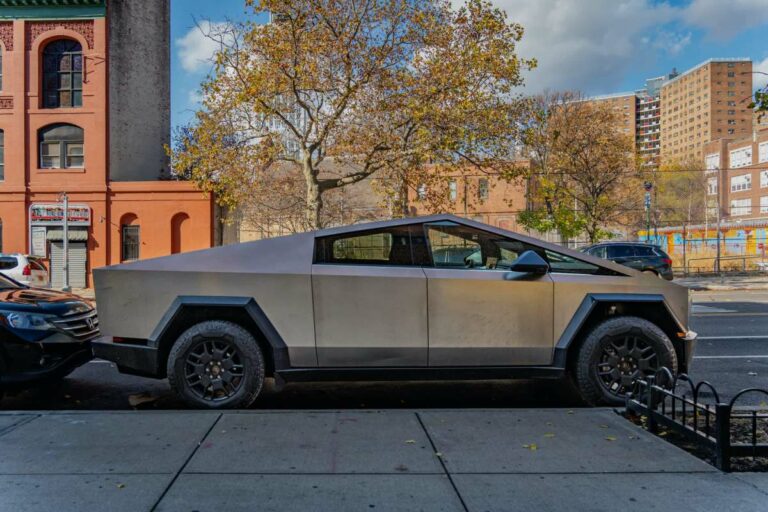Tesla Cybertruck Loses Top Spot as Best-Selling Electric Pickup in America
Tesla’s unique Cybertruck is no longer the top-selling electric pickup in the United States. According to a report by InsideEVs, citing data from S&P Global Mobility, the Ford F-150 Lightning took the lead in the first quarter of 2025, with nearly 800 more registrations than the Cybertruck.

This decline is notable as it marks the second consecutive quarter of falling Cybertruck sales. While this year’s numbers show an improvement over last year’s first quarter – when the Cybertruck was still ramping up production – the current slump could signal broader issues within Tesla’s EV lineup.
The Cybertruck’s environmental benefits make its sales slump particularly significant. As an all-electric vehicle, it produces zero tailpipe emissions, reducing air pollution and heat-trapping gases. It also integrates with Tesla’s clean energy ecosystem, further minimizing its carbon footprint. Owners can even use the Cybertruck to power other devices, such as appliances and phones.
However, the Cybertruck’s declining sales could have wider implications for Tesla. A sustained drop in demand might lead to production cuts and delays, potentially driving up prices for other Tesla models. This comes on the heels of Tesla’s $5,000 price increase for the Model S at the end of 2024.
Several recent developments at Tesla may be contributing to the Cybertruck’s decline. In 2023, the company recalled over two million EVs due to safety concerns with its Autopilot system. In 2024, Tesla announced a 10% workforce reduction and a recall of most Cybertrucks due to a potential issue with exterior panels.
Public perception of Elon Musk has also shifted in recent years, potentially influencing consumer views of the Tesla brand. If Tesla continues to face setbacks, it could slow the adoption of climate-friendly vehicles.
Despite the Cybertruck’s struggles, the overall EV market remains strong. The International Energy Agency predicts over 20 million EV sales globally in 2025, with U.S. EV sales growing by 10% in 2024. Other manufacturers, like BYD Co., are developing quick-charging EVs, and researchers are working on more efficient EV batteries.
While fluctuations in vehicle popularity are common, the broader EV industry is moving in a positive direction, with advancements that could make EVs more convenient and accessible.



